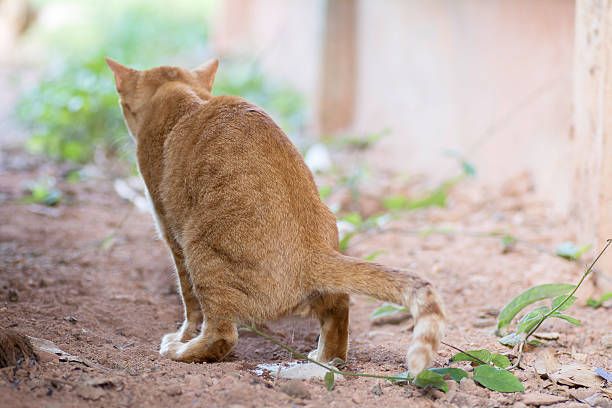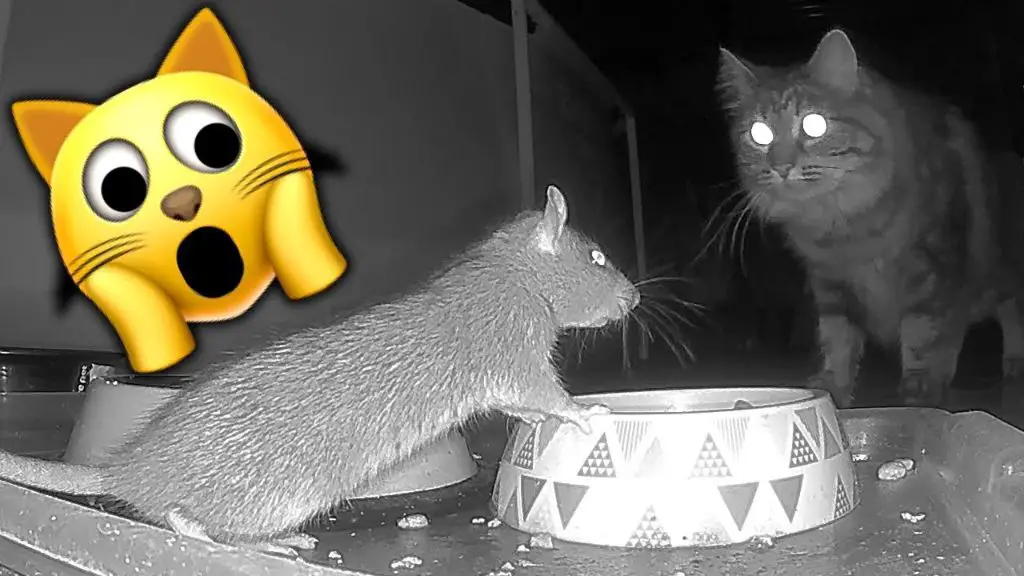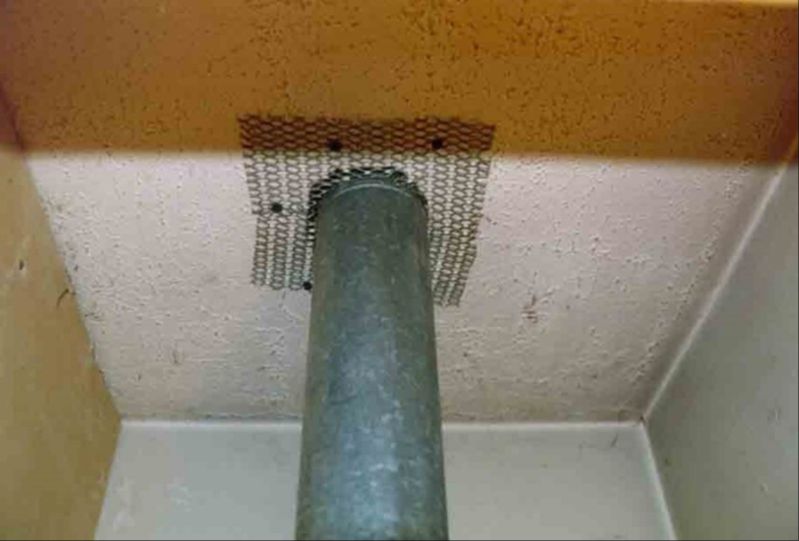It is a widely-held belief that cat urine can deter rats and mice from entering homes or yards. As rodent infestations continue to be an issue for many homeowners, there is a lot of interest around exploring natural and easy rodent repellents like cat urine. However, evidence is mixed on whether the smell of cat urine actually deters rodents.
This article will explore the origins of this belief, scientific research on the effects of cat urine on rodents, and anecdotal experiences from homeowners. We will examine other potential household-item repellents and proper usage and safety considerations if opting to use cat urine. Finally, we will overview preventive measures that are most effective for keeping rats out of homes and yards.
Why Do People Think Cat Urine Deters Rats?
There is a common belief that cat urine can help deter rats and mice. This stems from the fact that cats are natural predators of rodents like rats and mice. In the wild, rodents can smell when a cat has marked its territory, and they will avoid those areas to avoid running into the cat (Source).
When cats urinate, they release pheromones that indicate to other animals that a cat resides in that area. Rodents like rats and mice can detect these pheromones, even long after the urine has dried, and they tend to avoid places marked by cat urine (Source). The scent sends a signal that a predator is nearby, so rats and mice will steer clear to avoid becoming prey.

Therefore, the belief is that using cat urine, whether from your own cat or purchased commercially, will mimic this natural territorial marking and help deter rodents from entering an area. However, there is debate around whether cat urine alone is an effective deterrent against resilient urban rats and mice.
Scientific Research on Cat Urine and Rats
Several scientific studies have explored the effects of cat urine on rat behavior. The most well-known research comes from the 2007 study “Behavioral changes induced by Toxoplasma infection of rodents are highly specific to aversion of cat odors” published in the Proceedings of the Royal Society B: Biological Sciences (https://www.ncbi.nlm.nih.gov/pmc/articles/PMC1851063/).
In this study, researchers infected rats with the parasite Toxoplasma gondii which is known to reproduce in the guts of cats. They found that infected rats showed a lack of innate fear when exposed to cat urine. The researchers concluded that the parasite manipulates the rats’ behavior to increase the chance of transmission back to cats, its primary host.
A 2011 study called “Predator Cat Odors Activate Sexual Arousal Pathways in Brains of Toxoplasma Infected Rats” (https://www.ncbi.nlm.nih.gov/pmc/articles/PMC3157360/) built upon this research. They found increased activation in brain regions related to sexual arousal when infected rats were exposed to cat urine.
Overall, the scientific research indicates that cat urine can alter fear and sexual arousal responses in rats infected with Toxoplasma gondii. However, there is no evidence that cat urine alone deters normal healthy rats. The behavioral changes seem to primarily benefit the parasite rather than cats or humans.
Anecdotal Experiences with Cat Urine and Rats
Many people have tried using cat urine as a DIY rat deterrent with mixed results. While some swear by its effectiveness, others find it does little to keep rats away. Much of the evidence is anecdotal and based on personal accounts.
Some rat owners report putting dishes of cat urine around their homes and seeing fewer signs of rats afterwards. For example, one person claims soaking cotton balls in cat urine and placing them in rat entry points like under the sink dramatically reduced sightings in her kitchen (source). However, the urine needs to be frequently refreshed as the smell fades. It’s unclear if this is a long-term solution.
Others note setbacks trying this home remedy. One commenter shares that she placed bowls of cat urine in the attic to deter rats but it had no effect, possibly because the attic already smelled strongly of rodents (source). The rats were accustomed to the environment.
Using cat urine does not seem to permanently scare rats away. At best, it provides a temporary deterrent in some cases if applied strategically. However, rats may become used to the scent over time.
Other Potential Rat Deterrents
There are several other deterrents that have been shown to be effective for repelling rats without using dangerous poisons. Some proven methods include:
Traps – Humane traps or snap traps can be used to catch and remove rats. Traps should be regularly checked and maintained. While traps don’t repel rats, they can help control populations.1
Sound/light deterrents – Devices that emit high frequency sounds or flashing lights that annoy rats can deter them from an area. These may be less effective over time as rats become accustomed.2
Peppermint oil – The strong scent of peppermint oil is offensive to rats. It can be used by soaking cotton balls and placing them strategically.3
Mothballs – The odor of mothballs may deter rats, but they are toxic for people and pets. Use cautiously.
Ammonia – The strong ammonia scent can deter rats. However, it also requires safe handling.
Cayenne pepper – Sprinkling cayenne pepper powder may irritate rats and cause them to avoid the area.
Predator urine – The scent of predator urine from animals like coyotes, foxes, or bobcats may frighten rats away.
Risks and Downsides of Using Cat Urine
While some anecdotal experiences suggest that cat urine may deter rats, there are also some notable downsides and risks to consider before using it. One major difficulty is containing and directing cat urine in an effective way. As a liquid, urine can easily spread and seep into unwanted areas, making it hard to target specific rat entry points or nesting spots. Cat urine is also very pungent and the smell can be challenging to control. According to one source, “Cat urine is naturally a warning to rats to stay away from an area” (1). However, the smell can end up permeating far beyond the intended area.

There is also a risk that the strong scent of cat urine may attract other cats to the area. As cats smell the urine, they may come to investigate or mark the area themselves. This could result in unwanted visits from neighborhood cats or even territorial fights. The ongoing smell could also attract repeated visits and continued marking from the same cats. Using cat urine could essentially signal that the area is a cat domain and amenable for cats to visit (2). Rather than repelling all animals, cat urine specifically targets rats but can conversely attract cats.
(1) https://abcnews.go.com/Health/brain-parasite-linked-rats-attraction-cats/story?id=14340754
(2) https://www.quora.com/Does-cat-urine-keep-any-wild-animals-away-snakes-rats-mice-anything
Proper Application of Cat Urine
As mentioned above, while there is some anecdotal evidence that cat urine may deter rats, it should not be relied upon as a sole method of dealing with a rat infestation. However, some sources suggest if you want to try using cat urine as a deterrent, here are some tips for proper and safe application:
First, collect the cat urine in a clean container. Scoop fresh urine clumps daily from your cat’s litter box. Make sure to only collect urine and not any feces. Wear gloves when handling cat urine to avoid contact with germs.
Next, apply the urine along baseboards, in entry points, and places where you have spotted rat activity. You may want to dilute the urine with a bit of water so it spreads more easily. Apply it carefully with a spray bottle or disposable cloth. Be sure to avoid electrical outlets and appliances.
Re-apply the urine every few days. The smell will fade over time. Continue this for a couple weeks and monitor if you see any reduction in signs of rats. However, be prepared to take additional measures if the urine does not seem to deter rats.
Never handle cat urine without gloves, and wash hands thoroughly after application. Avoid inhaling fumes. Make sure children and pets do not have access to areas where you have applied it. Ventilate the space well after applying.
While cat urine is relatively harmless, exterminators do not typically recommend it as an effective or standalone rat control method. It’s best to call a professional if dealing with a serious infestation rather than relying solely on home remedies.
When to Call a Professional Exterminator
If you have a severe rat infestation that you can’t manage on your own, it may be time to call in a professional exterminator. According to AAI Pest Control, some signs that indicate you need professional help include:
- Extensive property damage and teeth marks on walls, floors, doors, pipes, and wires
- Rat droppings scattered widely throughout the home, including in pantries, cabinets, and drawers
- Visible gnaw marks and rub marks on walls and baseboards from their greasy fur
- Loud scurrying noises, especially at night
- A heavy musky rat urine smell
- Multiple rat nests and burrows
- Aggressive rats that aren’t afraid of loud noises or movement

A major infestation can be difficult to control without professional knowledge and equipment like baits and traps. Exterminators have the tools and expertise to fully inspect your home, find entry points, set bait stations, use rodenticides, and completely eliminate large populations of rats.
Preventing Rats in the First Place
The best way to deal with a rat problem is to prevent it from happening in the first place. Here are some tips for rat-proofing your home and property:
Seal any potential entry points. Look for gaps and holes on the inside and outside of your home, especially where utilities like pipes and wires enter. Use steel wool, caulk, concrete, or metal kick plates to plug holes 1/4 inch or larger. Pay special attention to areas like attics, basements, and around the foundation.
Manage food sources. Keep human and pet food in tightly sealed metal or glass containers, clean up spills immediately, and do not leave pet food out overnight. Pick up fallen fruit from trees and keep trash in closed bins. Compost should be contained in a sealed bin, turned regularly, and not allowed to accumulate.
Cut back vegetation. Keep plants, bushes, branches, and grass trimmed back from the house. This eliminates hiding spots and makes it less appealing for rats to nest nearby.
Raise hay, lumber, and firewood off the ground and far from the house on storage racks. Relocate woodpiles outside the home’s foundation.
Install door sweeps or screens on basement doors and windows. Use 1/4 inch hardware cloth to prevent gnawing through screens.
Set traps or use preventative bait stations around the exterior to help control populations. Be sure to safely dispose of any dead rats found.
With diligence, sealing, and properly managing food sources, you can help prevent rats from viewing your home as a welcoming habitat.
Conclusion

From the research explored, there are mixed results on whether cat urine effectively deters rats. Some anecdotal reports suggest cats or the scent of cat urine can keep rats away. However, scientific studies have not conclusively proven this effect. The parasites toxoplasma gondii may influence rodent behavior and make rats less afraid of cats, complicating the results. Using cat urine as a DIY rat deterrent has risks and downsides, like spreading germs or parasites. It also may not be effective. There are more reliable ways to deter and prevent rat infestations, like sealing entry points, removing food sources, and setting humane traps. Calling a professional exterminator is the best solution for getting rid of an existing rat problem.
In conclusion, while cat urine may deter rats in some circumstances, it should not be relied on as a sole solution. A comprehensive integrated pest management plan works better for preventing and eliminating rat infestations. If rats become a persistent issue, contact an exterminator to address the problem safely and effectively.
